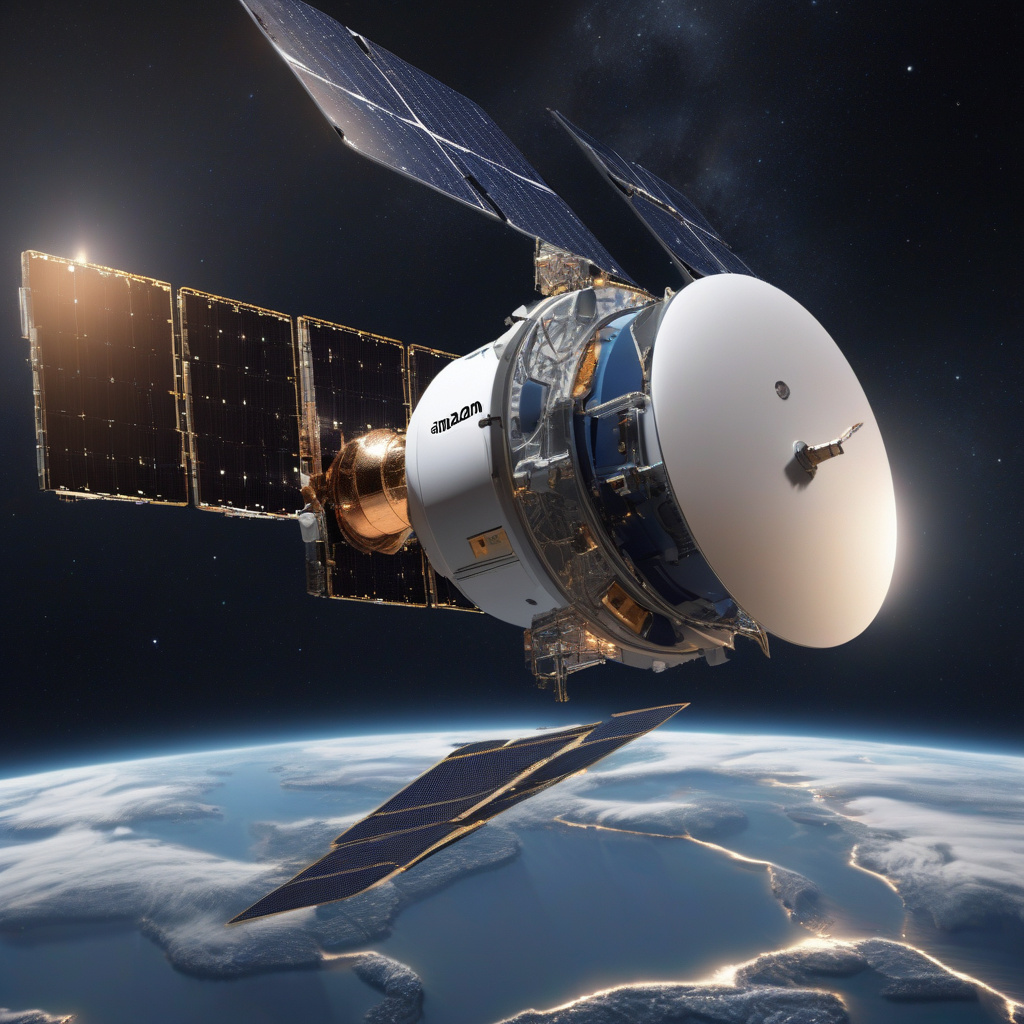In a significant move within the realm of satellite internet, Amazon has taken a bold step by launching 27 fully-built Project Kuiper satellites into orbit. This development, marked by an Atlas V rocket lifting off from Cape Canaveral, signals Amazon’s entry into the satellite internet market. The question on many minds now is: Will Amazon’s foray into satellite internet pose a challenge to SpaceX’s Starlink service?
Amazon’s Project Kuiper aims to provide high-speed, low-latency broadband connectivity to underserved and remote areas around the globe. With plans to deploy a constellation of over 3,000 satellites, Amazon is poised to compete directly with SpaceX’s Starlink, which has been operational and expanding its reach.
Starlink, led by Elon Musk’s SpaceX, has gained significant traction in the satellite internet space, offering high-speed internet to users in rural and remote locations. With thousands of satellites already in orbit and more launches planned, Starlink has carved out a niche for itself in providing reliable internet connectivity where traditional terrestrial networks fall short.
While Amazon’s entry into the satellite internet market adds a new player to the game, it remains to be seen how Project Kuiper will stack up against Starlink. Both companies have ambitious plans for their satellite constellations, aiming to provide global coverage and bridge the digital divide.
One key factor that could influence the competition between Amazon and SpaceX in the satellite internet space is the infrastructure and technology each company brings to the table. Amazon, with its experience in cloud services through Amazon Web Services (AWS), has a strong foundation to build upon for its satellite internet venture.
On the other hand, SpaceX’s expertise in aerospace technology and proven track record in launching and managing satellite constellations give Starlink a competitive edge. SpaceX has already made significant progress in rolling out its satellite internet service to customers in multiple countries, demonstrating its capabilities in delivering on its promises.
In terms of coverage and service quality, both Amazon and SpaceX will need to address challenges such as network congestion, latency issues, and regulatory hurdles as they scale up their satellite internet operations. Providing seamless connectivity to users in remote areas will require robust infrastructure and efficient satellite management systems.
As Amazon’s Project Kuiper and SpaceX’s Starlink continue to expand their satellite constellations and improve their services, consumers can expect more options for high-speed internet access, especially in areas where traditional broadband options are limited. The competition between these two tech giants will likely drive innovation and lead to advancements in satellite internet technology.
In conclusion, Amazon’s entry into the satellite internet market with Project Kuiper sets the stage for a compelling competition with SpaceX’s Starlink. Both companies have the resources, technology, and vision to shape the future of satellite internet services. As these initiatives unfold, consumers stand to benefit from increased connectivity options and improved internet access, ushering in a new era of global communication and connectivity.

